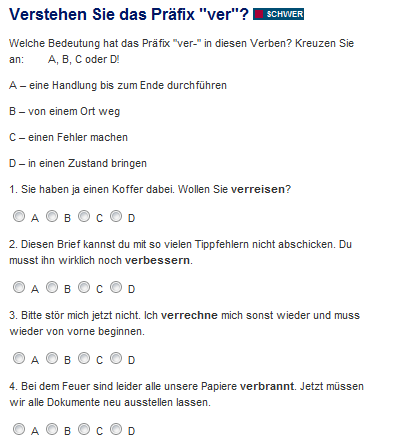If you ask me, this is a terrible test, which does not help you to learn German.
It is nice to know, what the prefix "ver" means and how it changes the meaning of words. If you want to know that, you can have a look at the Duden entry or Takkat's answer in the other question.
But this knowledge does not help you to understand the meaning. You do not take the verb "brennen" and think about the eight possible ways how "ver-" is changing the word and choosing the correct one.
You take the word that means "to burn" and you learn that there is a difference between "being on fire" (brennen) and "burning to ashes" (verbrennen). It's learning vocabulary, that's it. As I said, knowing the way how "ver" changes things is helpful, but only after you learned your vocabulary to deepen the understanding. The way this test puts it, does not work.
The point is, that you do not need to know if the "ver" in "verbrennen" correspond to A, B, C, or D. You have to know what the vocable means. If we were using "budischoben" for "burning to ashes", you would have to learn that word instead of "verbrennen".
For the record: "budischoben" is a nonsense word. I made it up for this example.
Also, be aware that "verrechnen" has two different meanings.

